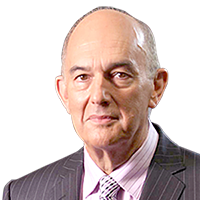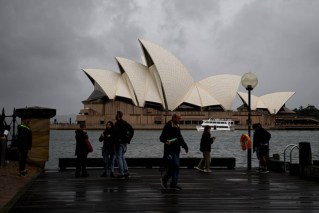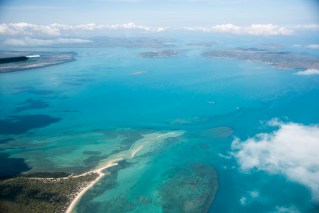Paul Bongiorno: Staving off a depression is Australia’s last best hope

The state of disaster in Victoria has rendered obsolete the Treasurer’s Budget update of just two weeks ago.
The six-week timeline for the Stage 3 lockdown in the state to curb the spread of the infection has been abandoned, crushed by a grim reality of failure.
The prospect of a quick recovery for the economy was always hostage to the success of containing, if not eradicating, the coronavirus contagion.
That hope was dashed even before the rate of infections accelerated alarmingly in the past fortnight in the nation’s second most populous state.
As Scott Morrison said late on Monday, Australia’s future now depends on the weeks and months ahead.
Australia is now staring in the face a deep recession no matter what happens with the Stage 4 lockdown.
The real worry is that we could crash further into depression with business failures and unemployment on a scale not seen in this country for 75 years.
Economist Stephen Koukoulas says there’s not much doubt Victoria is already bordering on this dire outcome.
Premier Daniel Andrews says half a million Victorians are working from home. They are the lucky ones.
A further half million have been stood down or lost their jobs, being supported either by JobKeeper or JobSeeker.

Victorian Premier Daniel Andrews updates the media in Melbourne on Monday. Photo: AAP
Shoving an economy in the deep freeze is as Mr Andrews said a “very tough day” and there are many more to come.
How many more depends on the response to the lockdown by angry, dispirited Victorians, many of whom are resentful that earlier measures have not worked.
Their frustration often deepened by failures in hotel quarantine and contact tracing.
But as the Prime Minister said at his late-afternoon news conference, none of that solves the current situation and what has to be done.
“We all know what has to be done now,” Mr Morrison said, throwing his full support behind Victoria’s strategy to get on top of the virus.
But at last there was a recognition that success will depend on people who have tested positive for the virus not returning to work.
Mr Morrison has announced a $1500-a-fortnight Pandemic Leave Disaster Payment for Victorian workers who have to isolate and either have no sick leave entitlements or have exhausted them.
This welcome rethink needs to be applied to the phasing out of the wage subsidy and beefed-up unemployment payments.
But more than that the Reserve Bank governor, many in business, the unions, Labor and the Greens are all calling for billions more dollars to be spent to bolster the recovery.
Shadow treasurer Jim Chalmers spelled out areas for nation-building investment: Social housing and renewable energy are on his list.
Labor leader Anthony Albanese on Monday added the need for a national plan to address the systemic weaknesses the virus has exacerbated in aged care.
Economist Stephen Koukoulas says the Commonwealth is in a much better position than the states to borrow the billions needed.
It can do it more cheaply and its ability to pay down the debt would be facilitated by businesses returning to profitability and hiring more workers who, in turn, pay income tax.
Recovery will take years – “Many years” as premier Andrews said of his state’s situation. The alternative is the deep recession sliding into a nationwide depression: The omens are already there.
Australians are deeply worried.
They have begun hoarding cash, with the Reserve Bank reporting a demand for notes reaching an all-time high.
In the June quarter the US economy posted its biggest post-war economic contraction of 9.5 per cent. The Eurozone was even worse with the powerhouse economies of France slumping nearly 14 per cent and Germany 10.1 per cent.
The US Federal Reserve is “planning for the worst” and while China is a bright spot, business writer Stephen Bartholomeusz says with “ever-deepening and widening hostilities’’ between it and the US we can’t depend on it to underwrite the world economy.
Treasurer Josh Frydenberg quoted the Reserve Bank governor on Monday, saying it’s a very difficult time to make economic forecasts.
He could have added, especially rosy ones.
Paul Bongiorno AM is a veteran of the Canberra Press Gallery, with 40 years’ experience covering Australian politics








